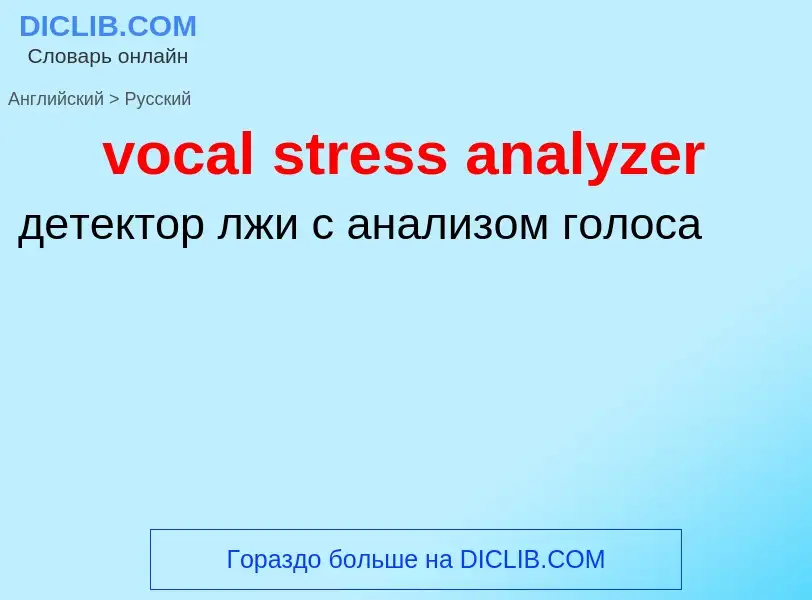Traducción y análisis de palabras por inteligencia artificial ChatGPT
En esta página puede obtener un análisis detallado de una palabra o frase, producido utilizando la mejor tecnología de inteligencia artificial hasta la fecha:
- cómo se usa la palabra
- frecuencia de uso
- se utiliza con más frecuencia en el habla oral o escrita
- opciones de traducción
- ejemplos de uso (varias frases con traducción)
- etimología
vocal stress analyzer - traducción al ruso
[əd'və:siti]
общая лексика
неблагоприятная обстановка
существительное
общая лексика
напасти
несчастья
превратности судьбы
напасти, несчастья, бедствия
специальный термин
неблагоприятный фактор
неблагоприятная обстановка
Wikipedia
In linguistics, and particularly phonology, stress or accent is the relative emphasis or prominence given to a certain syllable in a word or to a certain word in a phrase or sentence. That emphasis is typically caused by such properties as increased loudness and vowel length, full articulation of the vowel, and changes in tone. The terms stress and accent are often used synonymously in that context but are sometimes distinguished. For example, when emphasis is produced through pitch alone, it is called pitch accent, and when produced through length alone, it is called quantitative accent. When caused by a combination of various intensified properties, it is called stress accent or dynamic accent; English uses what is called variable stress accent.
Since stress can be realised through a wide range of phonetic properties, such as loudness, vowel length, and pitch (which are also used for other linguistic functions), it is difficult to define stress solely phonetically.
The stress placed on syllables within words is called word stress. Some languages have fixed stress, meaning that the stress on virtually any multisyllable word falls on a particular syllable, such as the penultimate (e.g. Polish) or the first (e.g. Finnish). Other languages, like English and Russian, have lexical stress, where the position of stress in a word is not predictable in that way but lexically encoded. Sometimes more than one level of stress, such as primary stress and secondary stress, may be identified.
Stress is not necessarily a feature of all languages: some, such as French and Mandarin, are sometimes analyzed as lacking lexical stress entirely.
The stress placed on words within sentences is called sentence stress or prosodic stress. That is one of the three components of prosody, along with rhythm and intonation. It includes phrasal stress (the default emphasis of certain words within phrases or clauses), and contrastive stress (used to highlight an item, a word or part of a word, that is given particular focus).













